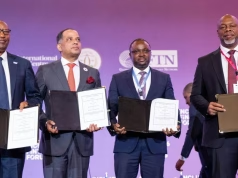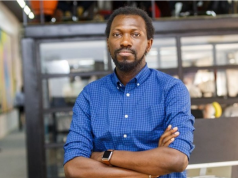The Nigerian Senate has approved the Nigerian Electric Vehicle Transition Bill for second reading, marking a decisive step toward overhauling the nation’s transportation and industrial landscape. With this move, Nigeria signals its intent to accelerate the shift from fossil fuel-dependent vehicles to clean, locally produced electric mobility solutions—a bold strategy aimed at reducing emissions, boosting domestic manufacturing, and positioning Africa’s most populous nation as a leader in the continent’s EV revolution.
Sponsored by Senator Orji Uzor Kalu, the bill establishes a comprehensive national framework to phase out petrol-powered vehicles and catalyze the adoption of electric vehicles (EVs) through incentives, local production mandates, and critical infrastructure development. At its core, the legislation seeks not only environmental sustainability but also economic transformation—turning Nigeria into a regional hub for EV assembly, innovation, and export.
To attract investment and drive consumer uptake, the Nigerian Electric Vehicle Transition Bill proposes a robust package of fiscal incentives: tax holidays, import duty waivers, road tax reliefs, toll exemptions, and direct subsidies for EV manufacturers, importers, and end users. These measures are designed to make EVs more affordable and competitive in a market still dominated by internal combustion engine vehicles.
A central pillar of the bill is its emphasis on local value addition. Foreign automakers will be required to partner with Nigerian assemblers, establish local EV production plants within three years, and source at least 30% of components domestically. Non-compliance could result in penalties of up to ₦250 million per violation. Unlicensed EV importers face even steeper consequences—fines of ₦500 million and potential confiscation of vehicles.
Local manufacturers are also held accountable. Assemblers must produce a minimum of 5,000 EV units annually while meeting international safety, performance, and technical standards—a benchmark that ensures quality and scalability. This provision builds on recent milestones, such as Innoson Vehicle Manufacturing’s launch of Nigeria’s first fully made-in-Nigeria electric car in 2024, signaling growing domestic capability.
Despite an estimated 15,000–20,000 EVs already on Nigerian roads and more than five active EV companies operating across the country, adoption remains constrained by one major obstacle: infrastructure. To address this, the bill mandates that all fuel stations nationwide install EV charging facilities, ensuring widespread access to power. It further incentivizes private investment in charging networks through government grants and tax credits—critical steps in eliminating range anxiety and building public confidence.
By aligning industrial policy with climate action, the Nigerian Electric Vehicle Transition Bill goes beyond transportation—it is a strategic blueprint for job creation, energy security, and technological sovereignty. It aims to reduce dependence on imported fuels, stimulate high-skilled employment, and integrate Nigeria into global green supply chains.
With Senate approval at the second reading, the bill now advances to committee review, stakeholder consultations, and public hearings before proceeding to third reading and final passage. If enacted, it would represent one of the most ambitious green industrial policies in West Africa—setting a precedent for how African nations can leverage regulation to drive innovation, sustainability, and inclusive growth.
As global automakers pivot toward electrification and climate-conscious markets demand cleaner alternatives, Nigeria is sending a clear message: the future of mobility in Africa won’t just be powered by electricity—it will be built here, by Africans, for Africa.
And with the Nigerian Electric Vehicle Transition Bill, that future is coming into focus.
Follow us on Instagram.
https://www.instagram.com/businessnewsng?igsh=ZXpweTdjOGF1ZXdu

























